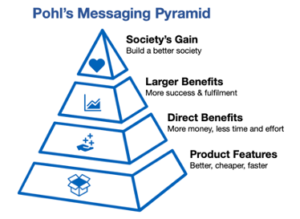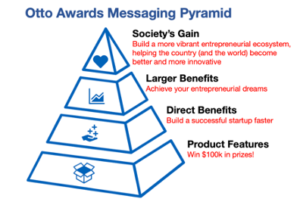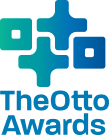Everything is a story. No company succeeds without enlisting external audiences to its cause. An entrepreneur needs to hire people, attract customers, and (usually) convince investors. Even beyond entrepreneurship, it’s all stories: Politics, social movements, the economy. Storytelling is not just what happens at bedtime—it’s the engine that changes the world.
Today I’m starting a discussion of what stories mean in the context of entrepreneurship, how to tell them, and to highlight some of the best examples. I hope you’ll stick around, get inspired, and contribute to the dialogue.
Stories are both simpler and more complex than the vaguely self-aggrandizing terms “story” and “storyteller” suggests. Simpler because stories aren’t the “once upon a time” concept that include a backstory about the hero’s childhood and a wicked stepmother as villain. They’re more complex because there are many different structures, especially in the modern media landscape, and you must pick carefully and knowledgeably.
I founded the Otto Awards to shine a spotlight on what is perhaps the most cost-effective tool to drive entrepreneurial success. Armed with an understanding of the basics, it’s not expensive or difficult. By highlighting phenomenal examples of storytelling, I hope to inspire everyone else to create success faster. Let’s build, people.
I founded the Otto Awards because I realized that conventional PR awards are essentially intra-industry gladhanding: a bunch of large PR agencies congratulating each other for the work they did in the previous year, with recipients excited to spend thousands on a table at an awards banquet knowing that they can add a new logo to their LinkedIn profile to impress their boss and perhaps negotiate a raise.
PR agencies focus on bigger companies and bigger campaigns because that’s where the money is. I do my work a few steps earlier in the development of a company, when life or death decisions are made on a tight budget and an even tighter deadline, by founders who are not ready to hire a phalanx of expensive consultants, or a large internal team, but they need to survive today if they want to be sufficiently successful to hire a PR agency later.
I founded the Otto Awards because the storytelling required to thrive at an early stage is not complicated, or expensive. It just requires a bit of knowledge and a little chutzpah.
My goal is to raise the profile of the art of raising your profile. Let’s explain the basics and then put the best examples on a pedestal so that we may have something to learn from, and aspire to.
The Basics of a Story
No matter the structure, medium, or style, every good story imparts meaning. It explains. Facts are just unconnected dots floating weightlessly across the page. Tethered into the arc of a story, they provide a framework that helps the human mind understand the impact of what it just learned.
The most common story structure we encounter is a character story, which shapes most movies and children’s stories. It explains the change a hero undergoes by overcoming setbacks and challenges. That can become the basis of a founding myth of a startup, or explain the motivations of the founders, but it’s not the only story structure in the startup world.
If a character story tells us why a person is the way they are, a story selling a product or service might focus on why the world needs it.
The Why? question splits into two pieces. The first is the immediate benefit an external party receives from engaging with your company (buy your product, invest, etc). The second is why the world will be better off because you exist.
You might pick one cordless drill over another because this one has a motor that turns at 5400 RPM, but that’s not why you’re buying a drill. You buy it because you want a hole in your wall, which you want because you want to hang a painting, which you want because you want a relaxing environment (and perhaps a happy spouse), which you want so you can be fulfilled. You’re buying the drill because you want a better life.
This stack of benefits can be explained by a modified version of Maslow’s hierarchy of needs:

Want a simple shortcut for making your startup story more powerful? Sell up the pyramid. You’ll be ahead of 90% of the competition, which is busy talking about how many RPM their product has.
So now if you ask me why I founded the Otto Awards, here’s how I would explain it:


If I do my job right, I will wrap the power of storytelling into a call for a more powerful, better future, and turned you from a transactional counterpart (“OK, I’ll take my chances at winning $100k”) into a fellow disciple (“Let’s transform entrepreneurship together”).
Notice I haven’t told you about how Luke’s father was in fact Darth Vader, or a backstory that reveals my psychological motivations for creating the awards. Forget Hollywood for now.
So let’s ask the question again: Why did I launch the Otto Awards? I did it to empower the dreamers and the change-makers, so that they can play their part in helping fulfill mankind’s promise of innovating our way to a future that is brighter, more prosperous, and better able to enable every human to live a fulfilling life.
(See what I did there?)

